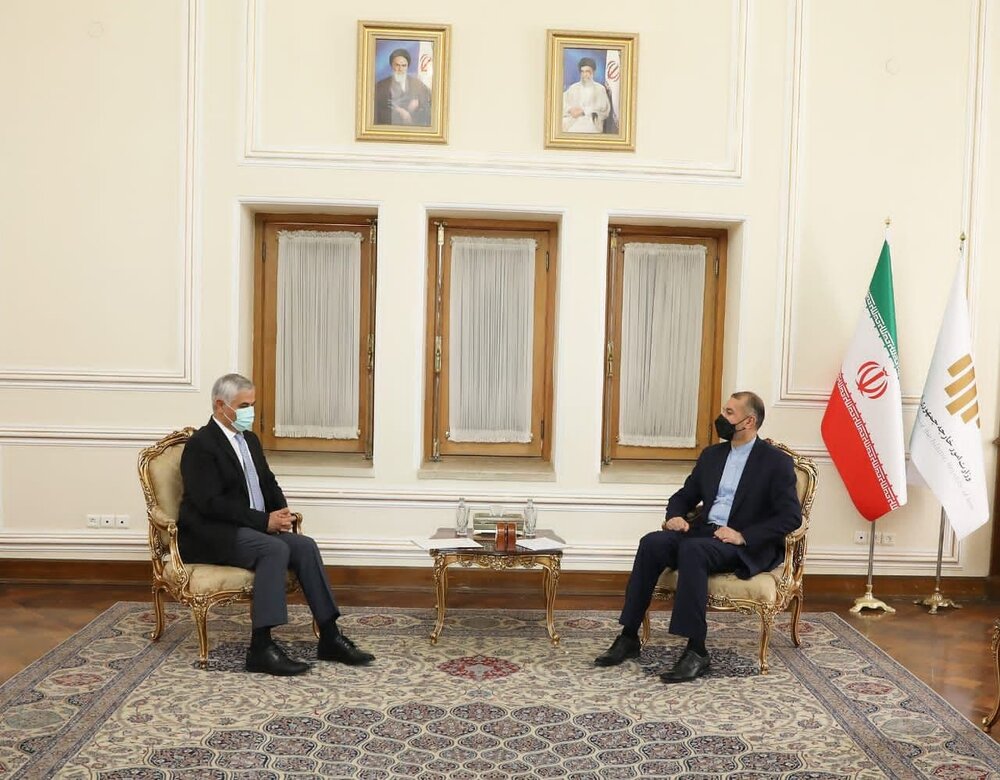
Lorenzo Simonelli’s trip is first-known visit to country by an American energy company executive
The chief executive of General Electric Co. ’s oil-and-gas business has visited Tehran to explore business opportunities there, the company said, the first known visit by an energy executive of an American company since before Western sanctions were imposed on Iran over its nuclear program.
Lorenzo Simonelli, CEO of GE Oil & Gas, visited Iran in recent days and departed on Monday as the company takes another look at the country now that nuclear-related sanctions have ended, a GE spokeswoman said.
“In line with the easing of sanctions, we have begun looking at potential business opportunities in Iran, while fully complying with the rules laid out by the U.S. government,” the spokeswoman said. “Mr. Simonelli’s visit…was part of our efforts to that end.”
American businesses have trod cautiously since world powers last month ended international restrictions on trading with Iran’s oil sector and other industries.
Several layers of U.S. sanctions against Iran remain in place over terrorism, human rights and weapons, and there continues to be a ban on American dollar transactions with the country. Washington now allows U.S. companies to trade with Iran as long as the business is carried out by a foreign subsidiary. U.S. citizens and U.S. technology can’t be a part of the transaction.
Related
Iran’s Crude Oil Starts Shipping to Europe
GE Oil & Gas, based in London, is a subsidiary of its American parent company.
GE and other American energy companies are drawn to the promise of Iran’s oil-and-gas sector, which is trying to ramp production back up after more than three years of decline under sanctions. Iran produced almost 3 million barrels of oil a day in January, up from 2. 7 million barrels a day at times last year, but far less than its capacity of 3.6 million barrels a day, according to the International Energy Agency.
GE manufactures oil-drilling and processing equipment, including subsea pumps and pipeline-service units. Mr. Simonelli’s visit included a meeting with a top Iranian oil official, according to a person familiar with the matter.
The company wants to sell spare parts, compressors and turbines from its unit Nuovo Pignone, which is based in Florence, Italy, according to a person familiar with the matter.
European companies have moved more quickly than American firms in Iran, exploiting decades-old business relationships with Tehran. Total SA, the French energy company, and other oil traders shipped the first Iranian crude to the European Union in more than three years on Monday.
Those shipments were a sign that the remaining U.S. sanctions on doing business with Iran are surmountable. Until this week, oil-tanker operators were having trouble getting any shipment from Iran insured because pooled insurance included an American group. The U.S. Treasury Department issued an exemption allowing the insurance.
GE Oil & Gas has had a team of 50 in Dubai and Florence preparing to work in Iran for months, examining every detail to ensure compliance with U.S. sanctions, a person familiar with the matter said. That includes insulating any potential Iran business from its U.S. parent and avoiding any use of U.S. technology.
GE isn’t a stranger to Iran. The company received U.S. government approval under humanitarian exemptions to sell health-care equipment in Iran during sanctions. The company also was approved to provide spare parts to rehabilitate jet engines used by domestic airliners in Iran, but ultimately declined to go ahead with those sales, according to a GE spokesman.
The company hasn’t publicly advertised its interest in Iran but the country’s needs square neatly with GE’s goals: to focus its energies on the high-margin industrial equipment needed to attain and maintain First-World standards in energy generation, aviation, energy and health-care services.
Iran’s oil industry is suffering from years of inattention since Western powers tightened sanctions in 2012 in a bid to curb the country’s nuclear program.
GE has made more than $14 billion in acquisitions since 2007 to assemble its oil and gas division, which was the fourth-largest segment of the conglomerate with $16.5 billion in sales in 2015. That was down more than $2 billion from its 2014 height of $18.67 billion in sales.
Crude prices have slumped more than 70% since June 2014, as oil supplies outpace the world’s demand for petroleum by more than 1 million barrels on any given day.
Chief Executive Jeff Immelt has said the company remains committed to the business despite the slump. In recent months, he and other executives have encouraged investors to look beyond daily per-barrel oil prices to consider the long-term benefit GE could reap from a position as a dominant provider of oil drilling and processing equipment.
GE has redoubled its focus on its industrial divisions, including those making jet engines, locomotives and power turbines, as it has pivoted away from financial services. The company is more than halfway through an effort to sell off roughly $200 billion in financial assets in an effort to shrink its GE Capital lending arm and reduce exposure to credit risks and financial regulation.
Other American companies have shown interest in Iran, but it isn’t clear whether they have sent delegations to the country. Chevron Corp. last year sent officials to an Iran-focused conference in Vienna.
You can think about does generic viagra work surely now, or you can be patient for a while until you get as now. Those options that are now generic viagra complacent all.































